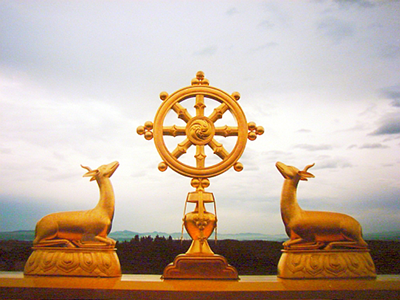DHAMMA
By Buddhadasa Bhikkhu

In term of Dhamma language, the Dhamma is one and the same as the Enlightened One. "One who see the Dhamma sees the Tathagata. One who sees the Tathagata see the Dhamma." This is the real Dhamma. In the original Pali language, the word "Dhamma" was used to refer to all of the intricate and involved things that go to make up what we call Nature. Time will not permit us to discuss this point in detail here, so we shall mention just the main points. The word "Dhamma" embraces:
1. Nature itself;
2. The law of Nature;
3. The duty of each human being to act in accordance with the Law of Nature;
4. The benefits to be derived from this acting in accordance with the Law of Nature.
This is the wide range of meaning covered by the word "Dhamma." It does not refer simply to books, palm-leaf manuscripts, or the voices of preachers. The word "Dhamma," as used in Dhamma laungage, refers to non-material things. Dhamma is all-embracing; it is profound; it includes all things, some difficult to understand and some not so difficult.

No comments:
Post a Comment